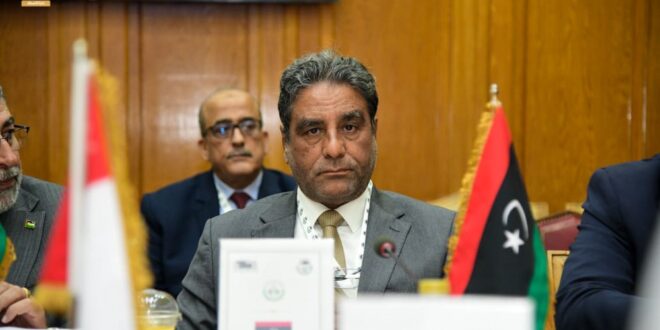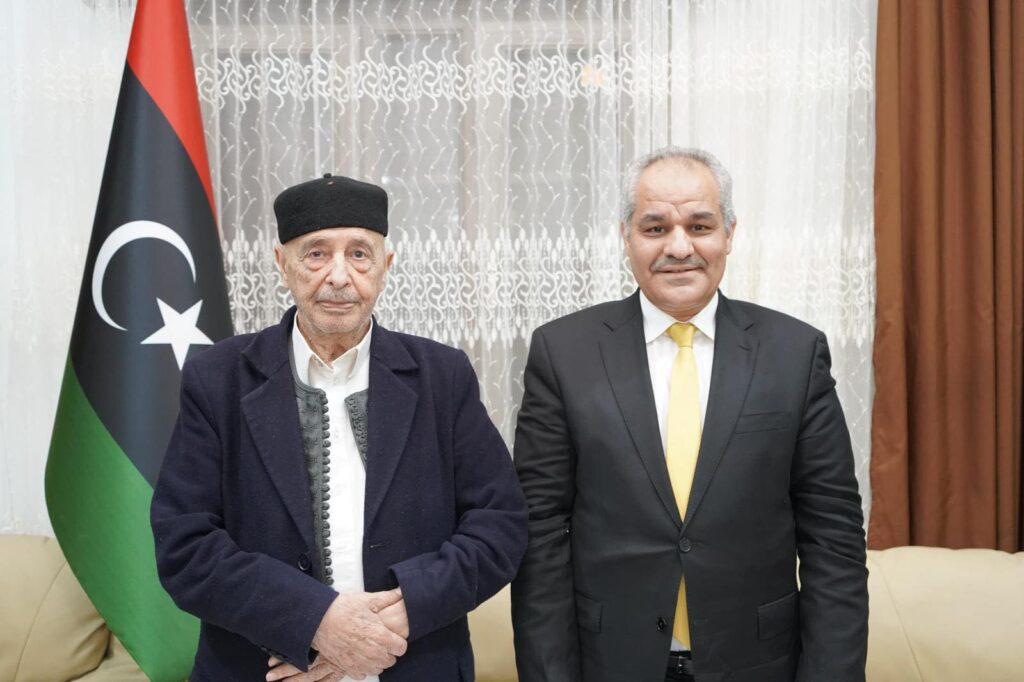Tripoli— The Governor of the Central Bank of Libya (CBL) Naji Issa has failed to show up in Parliament for a previously scheduled hearing on Tuesday 15 April. He has been strongly criticized for such failure to head the parliament’s invitation.
Media sources said Issa officially notified the Speaker of the Parliament Agila Saleh of his inability to attend the hearing due to another scheduled business trip abroad to participate in a meeting with the International Monetary Fund.
On 7 April, the Speaker officially invited members of the House of Representatives to attend the hearing following a call by 69 members for an urgent session regarding the Central Bank’s decision to reduce the exchange rate of the Libyan dinar against foreign currencies.
MP Abdulsalam Nasiya criticized the Governor’s disregard of the parliament’s hearing invitation and instead attending another event represents a clear example of the dependence of the state’s sovereign institutions on “foreign powers”.
“Given the difficult economic situation, the attendance of the CBL’s Governor of the Article IV consultations instead of the House of Representatives’ hearing clearly reflects the dependence of sovereign institutions on foreign [powers],” Nasiya wrote on his Facebook platform.
“Article IV consultations are simply the submission of economic data and information to the IMF team. Is that more important than submitting the same information to the House of Representatives and the Libyan people?,” Nasiya questioned.
“As long as the official believes that loyalty to/and fear of foreign [powers] is more important than loyalty to the law and national institutions, no reforms or measures will be feasible,” adding “the first step must be to reform the official”.
On 6 April, the Central Bank of Libya (CBL) announced a 13.3% devaluation of the dinar against special drawing rights (SDRs), increasing the value of the dollar by 5.5677 dinars.
The CBL described the move as “necessary in light of the absence of any hope or prospect for unifying dual spending between the two governments”.
On Monday, Issa, and his Deputy, Marai Muftah Al-Barassi, chaired the Article IV consultations in Tripoli between the CBL and the International Monetary Fund. Specialized technical teams representing several sovereign Libyan institutions participated in the consultations, according to a statement published on the CBL’s website.
The CBL said the consultations are part of an “assessment of the economic and financial situation in Libya, with the aim of supporting economic reform efforts that will contribute to achieving financial stability and promoting sustainable growth”.
“During the meeting, the performance of the national economy and the financial, monetary, and trade policies implemented during 2024 were reviewed, as well as the measures taken by the Central Bank of Libya during the first quarter of 2025,” it added.
Article IV consultations are bilateral discussions held annually between the IMF and its member countries. These consultations involve IMF staff visiting a country to assess its economic and financial situation. The goal is to provide policy advice to help stabilize economies, prevent financial crises, and improve living standards. Initially, these consultations were intended to be private.
Article IV consultations cover a range of economic and financial topics, typically organized around the following key areas: Macroeconomic stability, fiscal policy, monetary policy, external sector, financial sector, structural reforms, risks and vulnerabilities and social issues.

